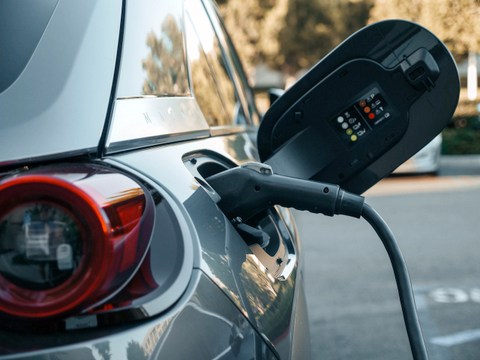How To Survive the Winter Driving an EV
Tips for Electric Cars To Navigate the Cold Stuff
This article may contain affiliate links.
Electric vehicles are becoming increasingly popular, but they can pose some challenges in the winter. Here are some tips on how to keep your EV charged and running smoothly during the colder months.
Keep an Emergency Kit in your Electric Vehicle
Electric vehicles offer many benefits: they reduce our dependence on oil, eliminate tailpipe emissions and help to save money. But unlike traditional gas-powered cars, electric vehicle batteries do not last as long in extremely cold weather.
When temperatures fall, it’s important to prepare for the possibility of getting stuck in an unanticipated winter chill. Arming yourself with an emergency car kit can help give you peace of mind if you happen to get stranded in the elements.
It should include items such as granola bars, a reflective blanket, rope or cordage and a first aid kit. You may also want to stock up on jumper cables and a mobile phone charger that plugs into the cigarette lighter outlet in your vehicle.
Beyond these basics, you might add tire chains or snow brushes for traction control and a small shovel for scraping snow away from wheels and tires. Having an emergency kit puts you one step ahead of Mother Nature – so make sure to include what you need before taking off on your next electric vehicle adventure!
In addition to an emergency kit, you should also ensure that you have adequate car insurance. Even a policy with cheap rates can provide some coverage in case of an emergency.
Keep your EV Battery Charged
Driving an electric vehicle has obvious advantages in terms of fuel efficiency, but it also comes with an important responsibility: keeping the battery charged. When the temperature drops, the cold weather can reduce the capacity of a battery.

To maximize performance and ensure your EV is always ready for the road, it’s essential to remain vigilant about keeping the battery charged.
One way to do this is to park your car in a sunny spot while it’s not in use – solar heat helps maintain your battery and warm up the interior at the same time.
Some people even invest in smart chargers that apply extra power when it gets too cold outside. It’s also possible to take advantage of public charging stations or charging programs offered by certain retail stores.
By heeding basic guidelines like these, you can extend your car battery’s life and stay safe on winter trips too. With a bit of patience and understanding, there are plenty of ways to keep your EV’s battery healthy during cold weather months!
Warm your EV Before You Hit the Road
In cold weather, it becomes more important to save battery power. To help prevent winter range loss for all-electric vehicles, the best solution is to warm your vehicle before you begin your drive. By doing this, less energy will be used because it takes more energy to raise the temperature than maintain it.
Preheating your car when it’s still plugged in is highly recommended–this will use energy from the power grid instead of taking from the battery’s reserves, saving valuable energy for driving. All these steps combined will help conserve battery life and ensure a worry-free winter season on the roads.
Keep Deicing Equipment in your Vehicle
If you own an electric vehicle, it is important to be prepared for icy conditions by keeping a de-icing spray and ice scraper/snow brush combo in your vehicle at all times. Using a de-icing spray can be the difference between being able to get into your car or being locked out when facing a sheet of ice on your door handle or locks.
Additionally, having this product on hand is necessary to free up any frozen charging ports, which would otherwise prevent you from having access to charge your EV. Make sure your de-icing spray is always readily available so you don’t have any unwelcome surprises as winter approaches!
Plan your Route Ahead of Time
Electric car owners know all too well the anxiety of watching their battery power slowly disappear as they drive. To ease your EV driving jitters, be sure to plan your route ahead of time and research where you can find charging stations along the way. This will help make sure you don’t run out of juice and have to worry about being stranded on the side of the road.

As you add charging stops to your journey, pay attention to the exact location and the cost for each station to ensure that it’s both safe enough for a break and fits in your budget. Also, if you’re making longer drives and need fast charging, try to look up which stations offer DC fast-charging options (if applicable) so that you can save time and maximize range.
By doing all this ahead of time and double-checking your data with Google Maps or another navigation app, you can rest assured knowing that you won’t enter into an unknown situation without adequate preparation. In this way, careful route planning is one of the best things electric car drivers can do before going on their next adventure.
Drive Carefully in Winter Weather
Winter weather can be hazardous for all drivers, but those with electric vehicles should exercise extra caution. When driving your EV in cold weather, the most important thing to remember is to take it slow and avoid any sudden moves.

Electric vehicle batteries are notoriously sensitive in colder temperatures, which means that hard acceleration or braking can cause them to more quickly deplete their charge. Instead of aggressive turns or quick stops, try to make all maneuvers as gradual as possible.
If you have an extended range model, a winter driving mode may be available – use this setting if necessary to maximize battery life during cold conditions. It’s also important to make sure your tires are sufficiently inflated and are in good condition before heading out into wintry conditions; properly-maintained tires will help provide additional traction and stability.
By taking these precautions when driving an electric vehicle in cold weather, you’ll not only get safely from point A to point B, but also extend the life of your vehicle’s battery life as well.
Winter weather can be tough on your electric car’s battery. Be sure to keep it charged, preheat your EV before you hit the road, and keep deicing equipment in your car. An emergency kit is also a must in case you get stranded. Plan your route ahead of time so you know where you can stop to charge up. And finally, drive carefully in winter weather –take it slow and don’t make any sudden moves.

4 thoughts on “How To Survive the Winter Driving an EV”